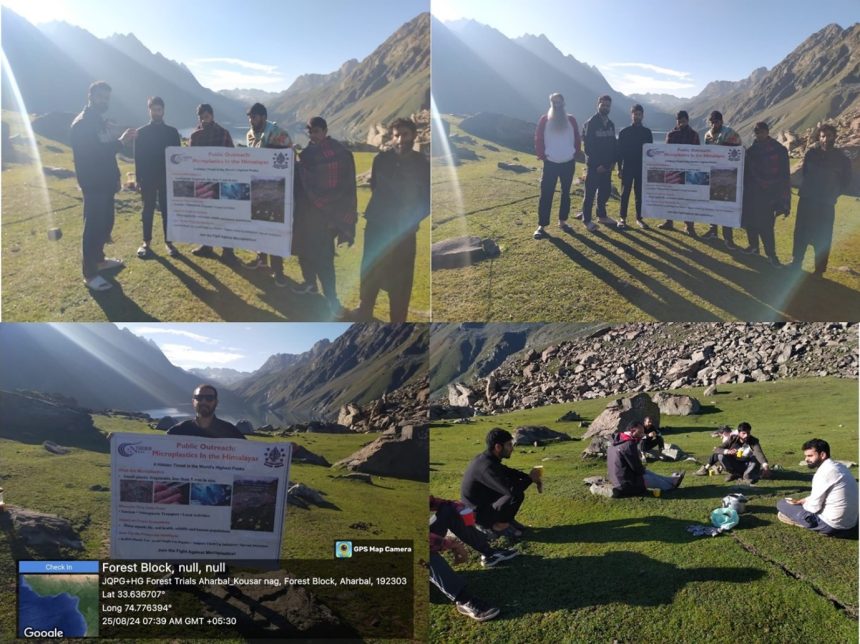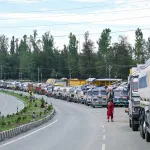Srinagar, Sep 07: A two-day workshop on microplastic pollution in the Himalayas was held at Kounsarnag, a high-altitude lake in the western Himalayas.
Organized by Dr Shahid, a National Postdoctoral Fellow (NPDF) from NIT Srinagar, the event was part of the NPDF Project funded by the Science and Engineering Research Board (SERB), New Delhi.
The workshop aimed to highlight the growing concern of microplastic pollution, particularly within the fragile and ecologically sensitive mountain ecosystems that are crucial to the region’s biodiversity and environmental health.
The workshop drew a diverse group of participants, including local mountain communities, shepherds who traverse the rugged terrain, trekkers frequenting the area’s trails, and research scholars specializing in environmental sciences. Academic representatives from the University of Kashmir and Govt. Degree College D.H. Pora, Kulgam, also took part in the event.
In his keynote address, Dr Shahid highlighted the growing threat of microplastics, now reaching even the most remote and pristine areas, such as high-altitude glaciers and alpine lakes. He emphasized the urgent need for collaborative efforts to understand and address this pollution, which not only threatens local ecosystems but also poses broader risks to global environmental health.
Dr Shahid further elaborated on the challenges posed by microplastic pollution, discussing its wide-ranging impacts, from ecological disruption to potential health hazards for both wildlife and humans.
He also shared practical steps local communities and individuals can take to reduce plastic use and mitigate further pollution in these delicate environments.
The workshop concluded on a proactive note, with participants engaging in a hands-on plastic collection drive around the Kounsarnag area. This collective effort not only helped clean the region but also symbolized the shared responsibility of preserving the natural beauty and ecological integrity of the Himalayas. The event was a powerful reminder of the urgent need to protect these fragile environments for future generations.








